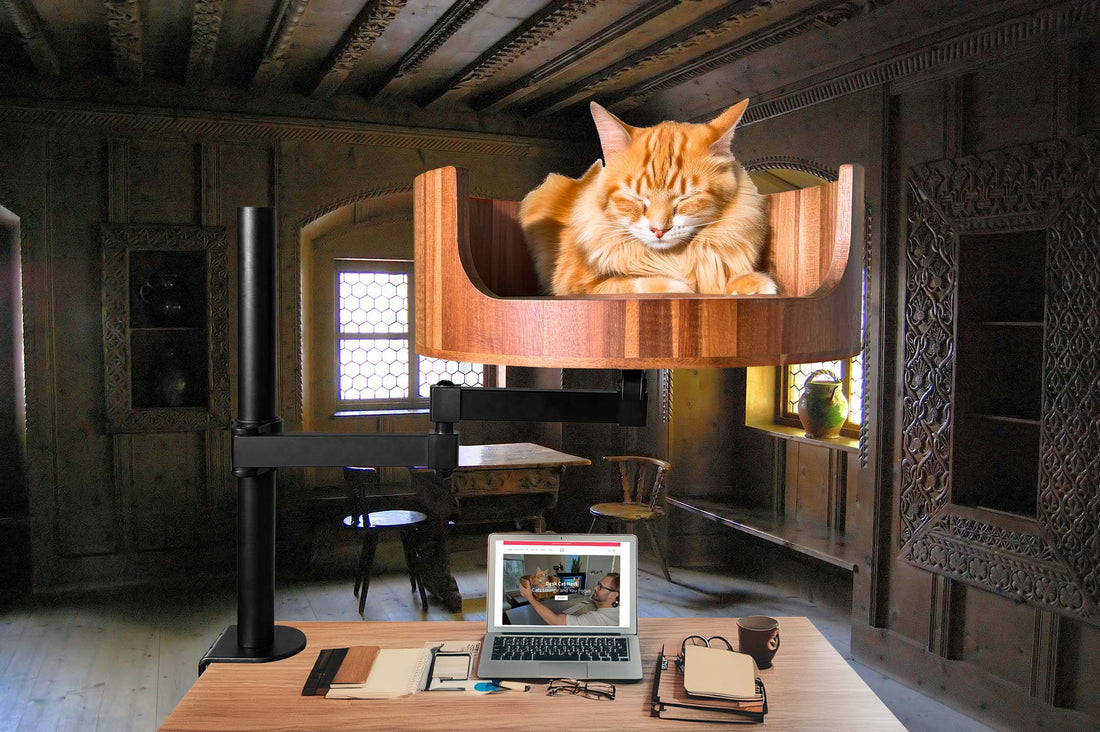
Why Does Cats Vibrate: Understanding Feline Purring
Share
Ever wonder why cats vibrate? In the world of feline behavior, purring is a common phenomenon that often leaves cat owners scratching their heads. From contentment to communication, there are a variety of reasons why cats purr, and understanding this behavior can help deepen the bond between humans and their furry companions. In this article, we will explore the fascinating world of feline purring, uncovering the science behind this mysterious sound and shedding light on the various meanings it can convey.
One of the most interesting aspects of cat purring is its ability to serve as a form of communication between cats and their human counterparts. While cats often purr when they are happy and relaxed, they may also purr when they are feeling unwell or in need of comfort. By paying attention to the pitch, frequency, and duration of a cat's purring, cat owners can learn to interpret their feline friend's needs and emotions more effectively. Additionally, research has shown that purring has various physical benefits for cats, including promoting healing, reducing stress, and even lowering blood pressure. By delving into the science behind purring, we can gain a better understanding of our cats and strengthen the bond we share with them.
1. Cats purr as a form of communication, expressing a range of emotions such as comfort, happiness, and even pain relief.
2. The frequency of a cat's purr, typically between 25-150 Hertz, has been shown to promote healing and reduce stress in both cats and humans.
3. Cat purring is not only beneficial for their well-being, but can also have positive effects on their owners, promoting relaxation and a sense of comfort.
4. Understanding the reasons behind cat purring can help owners better connect with their feline companions and provide the care and support they need.
5. Overall, the unique ability of cats to vibrate and purr enhances the bond between humans and their beloved pets, fostering a deeper understanding and appreciation of these mysterious creatures.
## What Causes Cats to Purr?
Cats purr for a variety of reasons, and it's not always easy to pinpoint exactly why. One of the most common reasons for purring is that cats use it as a form of communication. They may purr when they're happy, content, or relaxed, but they may also purr when they're in pain or distress. Additionally, some experts believe that purring helps cats to heal faster, as the frequency of the vibrations can promote bone and tissue growth.
## Physical Effects of Purring on Cats
When a cat purrs, it's not just a sound they make - it also involves a physical vibration within their body. This vibration is created by the rapid contraction and relaxation of the muscles in the cat's larynx. The sound is produced as the air passes through the vibrating muscles, creating a consistent rhythm of purring. Some research suggests that purring can have a soothing effect on cats, helping to lower their stress levels and providing a sense of comfort.
## Behavioral Significance of Purring in Cats
Purring is a complex behavior in cats that serves various purposes. It can indicate a cat's emotional state, such as relaxation, happiness, or contentment. However, cats may also purr when they are anxious, uncomfortable, or in pain. Understanding the context in which a cat purrs can help pet owners better interpret their feline companion's needs and emotions. By observing a cat's body language and other cues, such as ear position and tail movement, pet owners can gain a better understanding of why their cat is purring.
## Health Benefits of Purring for Cats
In addition to its role in communication and emotional expression, purring also offers several health benefits for cats. The vibrations produced during purring have been linked to improved healing of bones, muscles, and tissues. This is particularly beneficial for cats that have been injured or are recovering from surgery. Purring is also believed to have a calming effect on cats, reducing stress and anxiety levels. Some studies have shown that cats who purr regularly may have lower blood pressure and decreased risk of heart problems compared to non-purring cats.
FAQs for Desk Cat Nest
What causes my cat to vibrate?
There are a few reasons why cats may vibrate. One common cause is purring, which is a natural behavior for cats that can create a vibrating sensation. Cats also may vibrate when they are excited, scared, or feeling content.
Is it normal for my cat to vibrate?
Yes, it is normal for cats to vibrate. Purring is a natural behavior for cats, and vibrations can also occur when they are feeling various emotions such as happiness or anxiety.
Should I be concerned if my cat is vibrating excessively?
If your cat is vibrating excessively and showing other signs of distress such as lethargy or lack of appetite, it may be a good idea to consult with a veterinarian to rule out any underlying health issues.
Will the Desk Cat Nest help my cat feel more secure and reduce their vibrations?
The Desk Cat Nest is designed to provide a cozy and secure space for your cat to relax and feel safe. Having a designated space like the Desk Cat Nest may help reduce your cat's vibrations, especially if they are feeling anxious or unsure in their environment.
In conclusion, the Desk Cat Bed is a valuable choice for cat owners whose feline companions frequently exhibit vibrating behavior. This innovative product provides a cozy and comfortable space for cats to relax and feel secure, ultimately helping to reduce stress and anxiety levels that may be contributing to their vibrating actions. By investing in a Desk Cat Bed, cat owners can improve their pet's overall well-being and create a peaceful environment for both themselves and their beloved feline friends.



















































